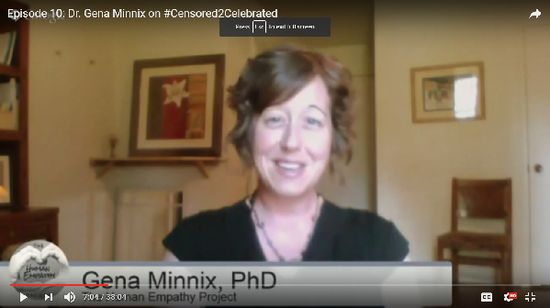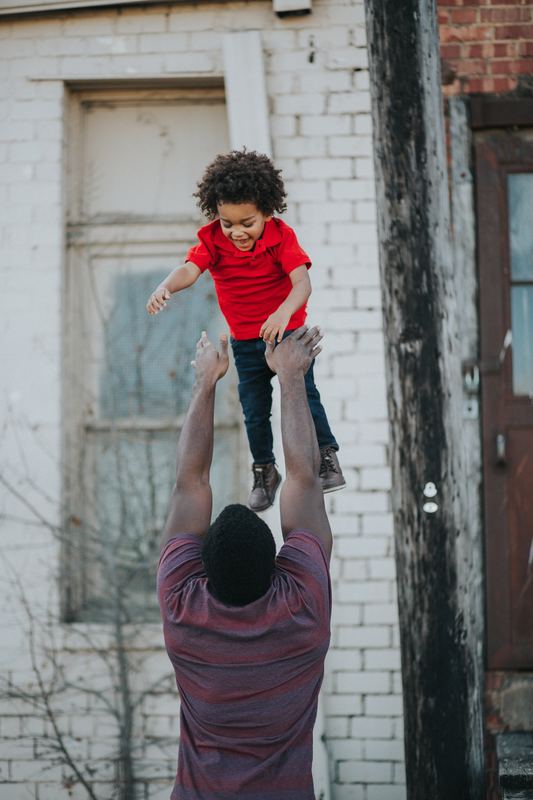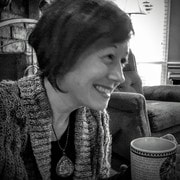How We Began The Human Empathy Project was born one day when a group of diverse friends came together to learn more about the crossroads of Christian beliefs and LGBT affirmation. We began gathering monthly dinner conversations around a common table, sharing food and stories from our lives and experiences of God, faith, relationships, and community. Some were people of faith and some were people who did not identify with any particular religion, or who’d had really hurtful experiences in church. Some folks identified as LGBT and/or gay Christians... and some were heterosexual folks who’d never even sat int the same room as a married gay couple before.
We slowly came to discover two important things. First, if we think of empathy as a stream of water, then when the ground is even and level, ideally empathy will flow both ways. However, when the ground is uneven, due to inequality or marginalization or judgement, then empathy must always flow downhill. Call it the “law of empathy” if you will. So if empathy ever flows uphill, then we can say it’s being extremely generous. That. I think, needs to be understood really well from the start. The second thing we learned is this: Empathy flourishes when there is no other agenda. This was actually pretty surprising to learn because we often do have agendas we may not always recognize. As an evangelical Christian, I’m often inclined to think God wants me to say or do a particular thing, to try to influence someone else’s view of faith, etc. but that’s not how empathy works. “Empathy flourishes when there is One of the gay married Christian couples at our dinners actually got really frustrated with the celibate gay Christians who were coming. They were like, Why are you so committed to celibacy? Aren’t you just repressing yourself? We talked it through as an empathy practice and that was actually really powerful, diverse folks came to trust one another. They saw that everyone who was coming to these dinners was being extremely thoughtful about their lives, their relationships, their spiritual health and wellness. God can help each of us discern together and come to trust one another and the spirit when we gently set aside our agendas and simply try to listen and understand each other's unique experiences. Here’s another example. Some of our LGBT friends who came to our dinners shared that they found it extremely difficult to sit in the room and share a meal with pastors and ministers because of how deeply they’d been hurt by the church. As a result of the conversations, they came to understand some of the vulnerabilities of the pastors, that they’re just people, with feelings and loyalties and complex lives, and that mutual understanding seemed really helpful and even healing for some. Another example of profound empathy occurred when a heterosexual couple at one of our dinners commented that they felt baffled by bisexuality. They asked the group around the table, “If someone’s bi, does that mean they need to seek out both genders to feel satisfied in life?” We discussed this and it turns out, this is is common misunderstanding about bisexuality. Those who feel attracted across genders actually tell us they are as desiring of a committed monogamous relationship as anyone else; when they fall in love with someone, it's no different than when a heterosexual person falls in love and wants to marry or commit themselves to a partner. Slowly through practicing mutual empathy and getting to know one another’s stories, understanding grew. One person who'd been coming to our dinners decided to go back to church. A few friends came out to themselves. One couple got engaged to be married. Several people said they found the conversations healing. It’s not about everyone agreeing. For Christians, there's this idea called the "priesthood of all believers", it's important to our faith. It means we’re each responsible to pray and figure out what the scripture means and what the spirit's doing in our lives. So we can stay open, and empathetic, to each other. It relieves the pressure we often feel to try to change each other’s minds.  Click here to listen to Gena share the vision for the Human Empathy Project.
0 Comments
|





 RSS Feed
RSS Feed
